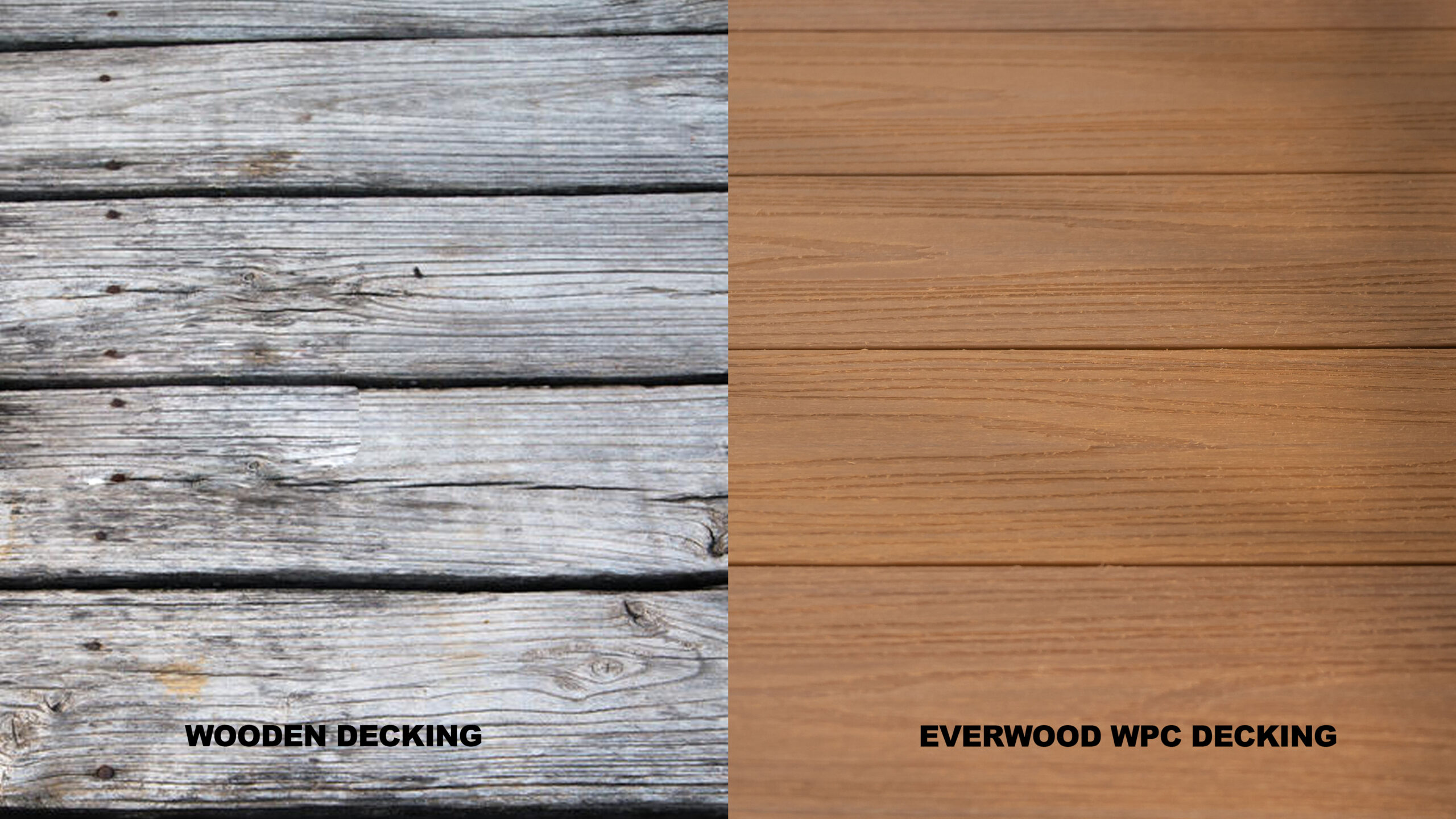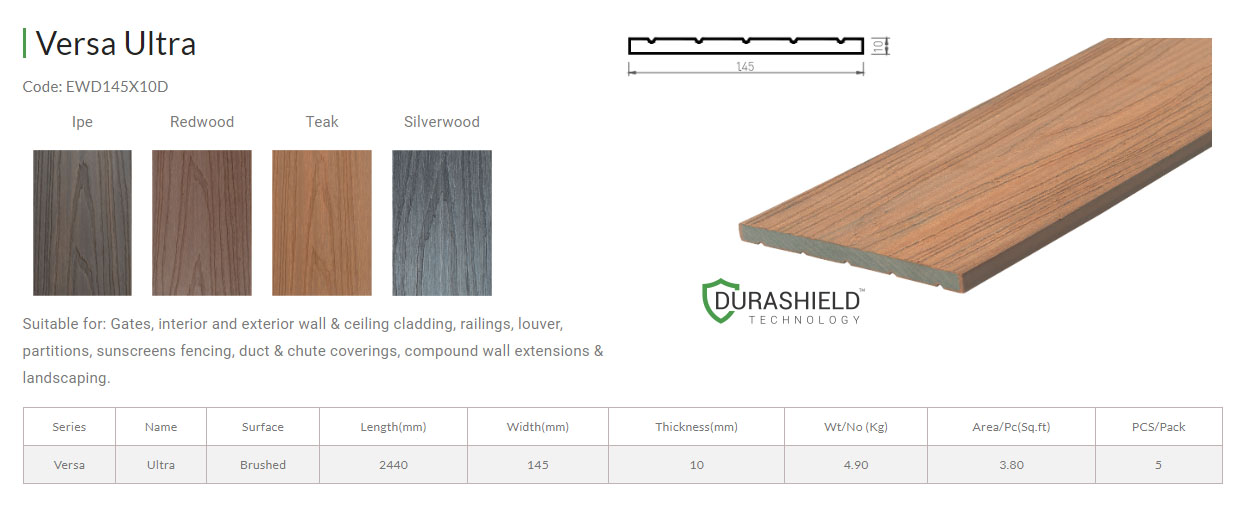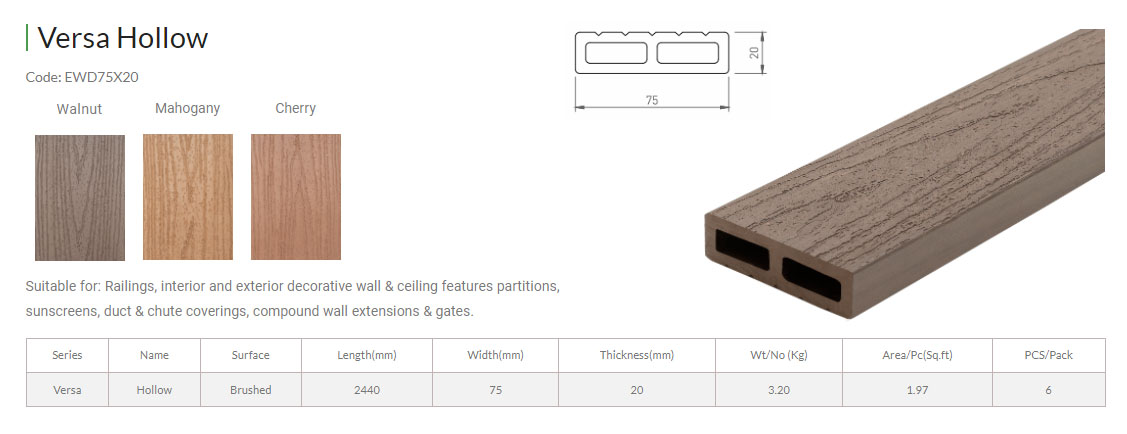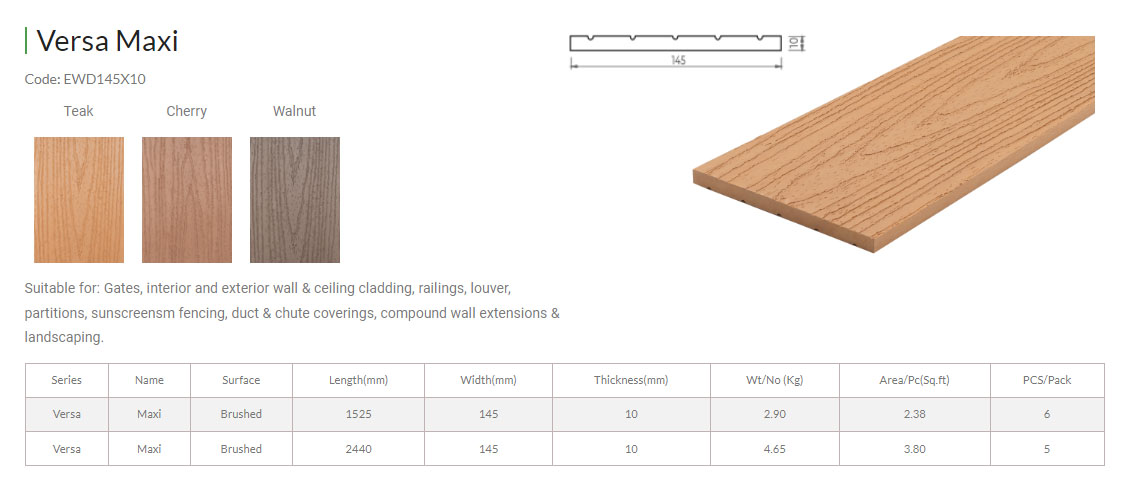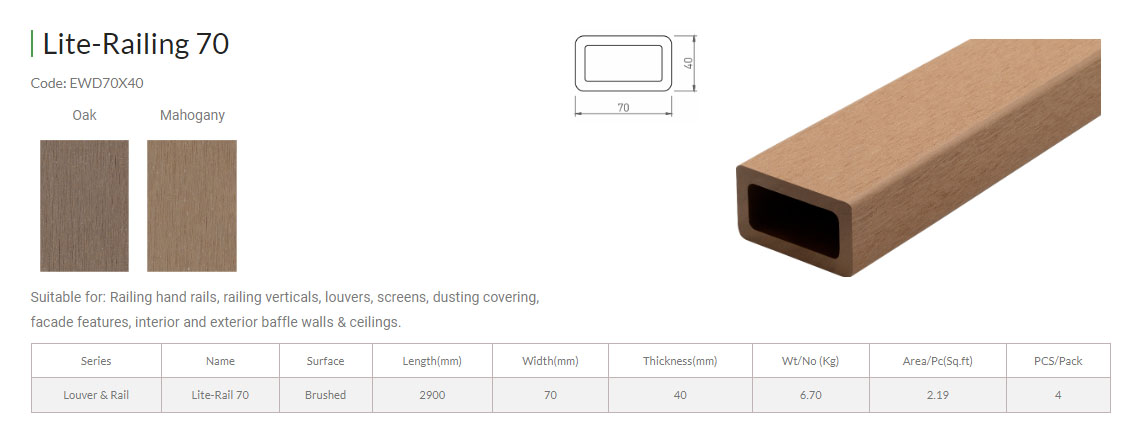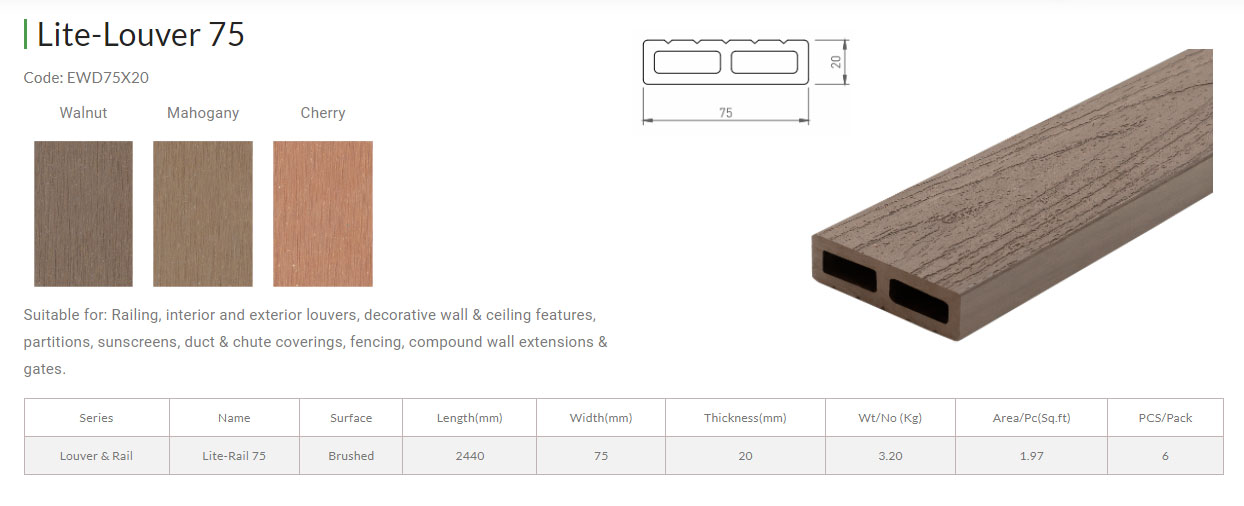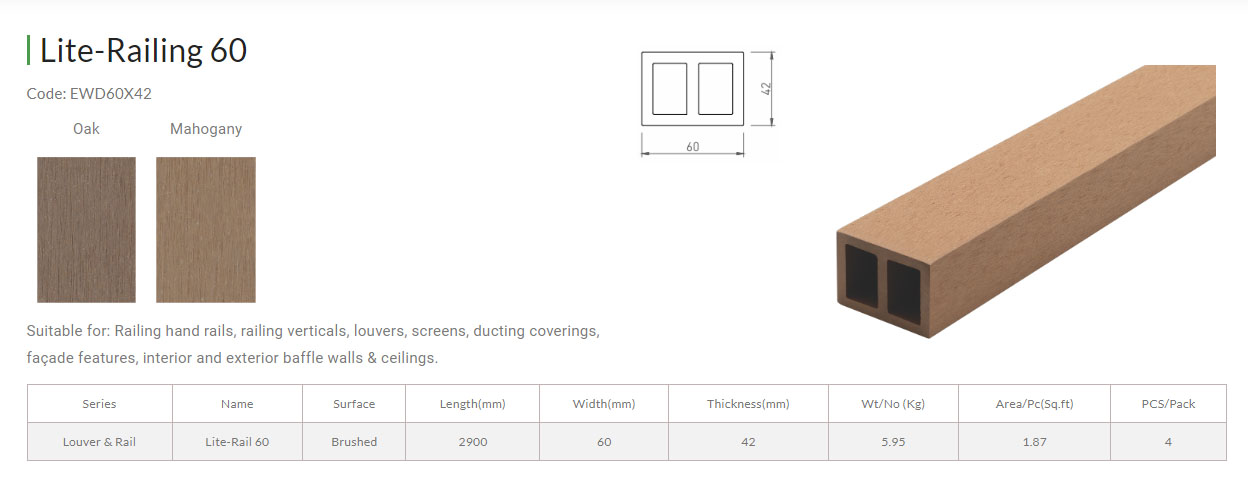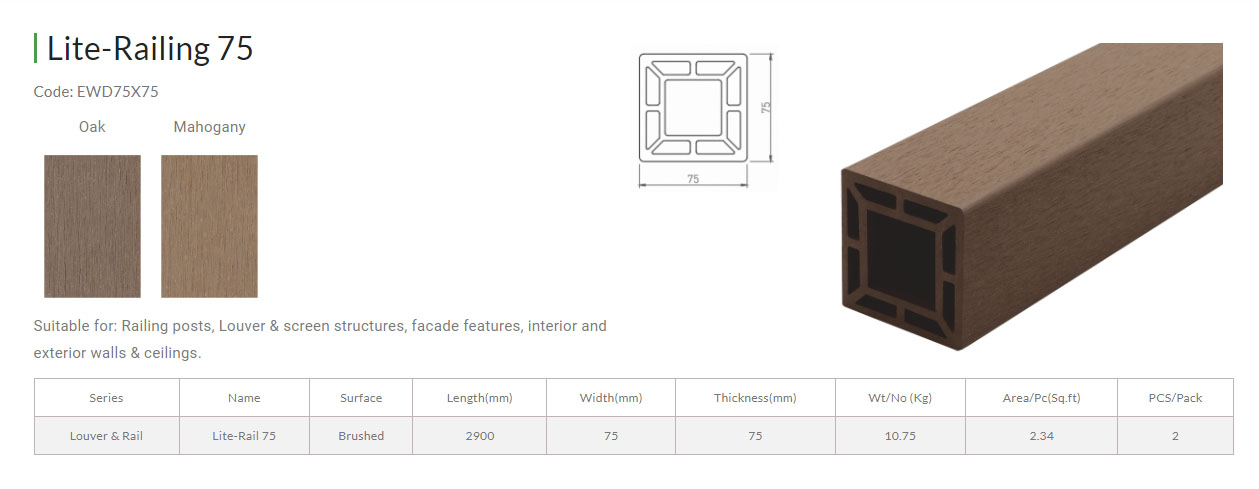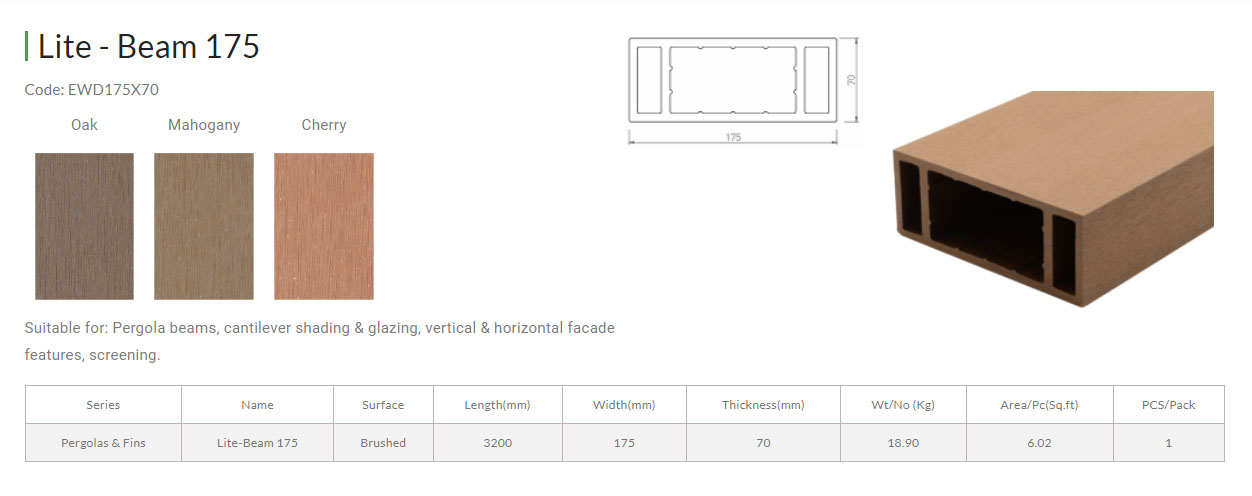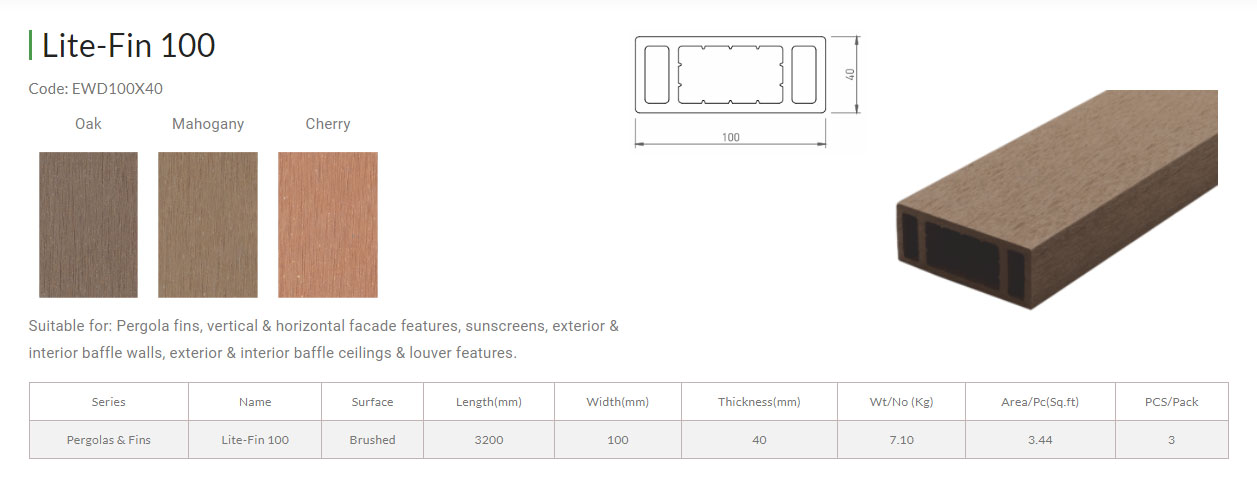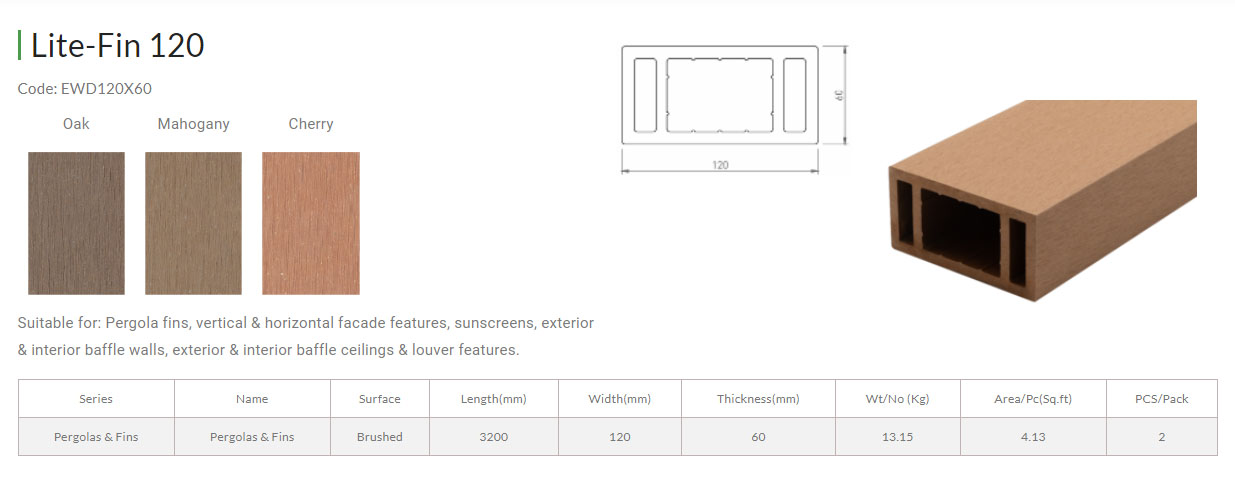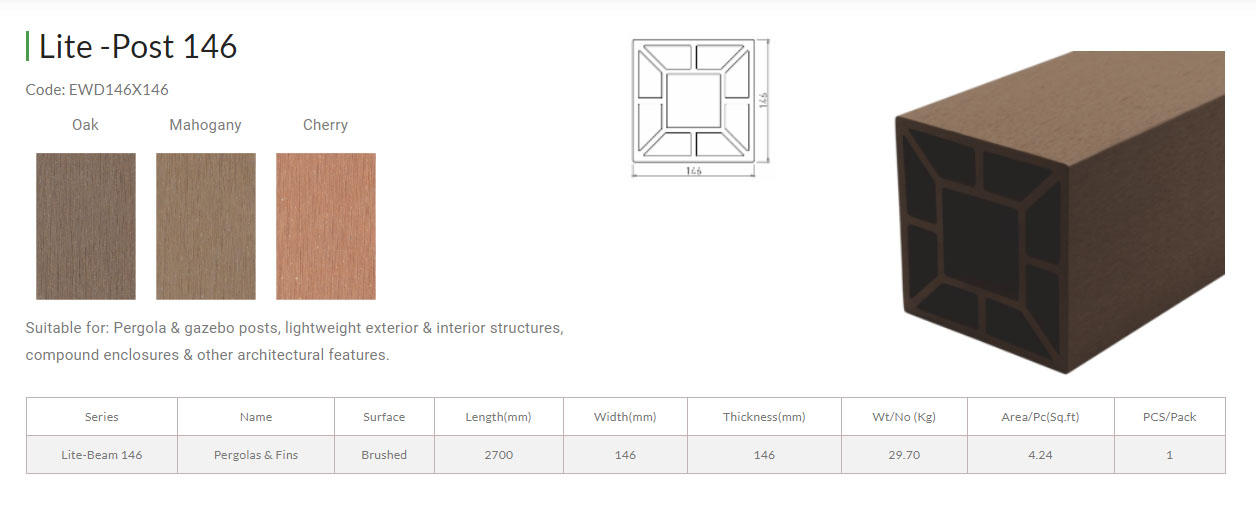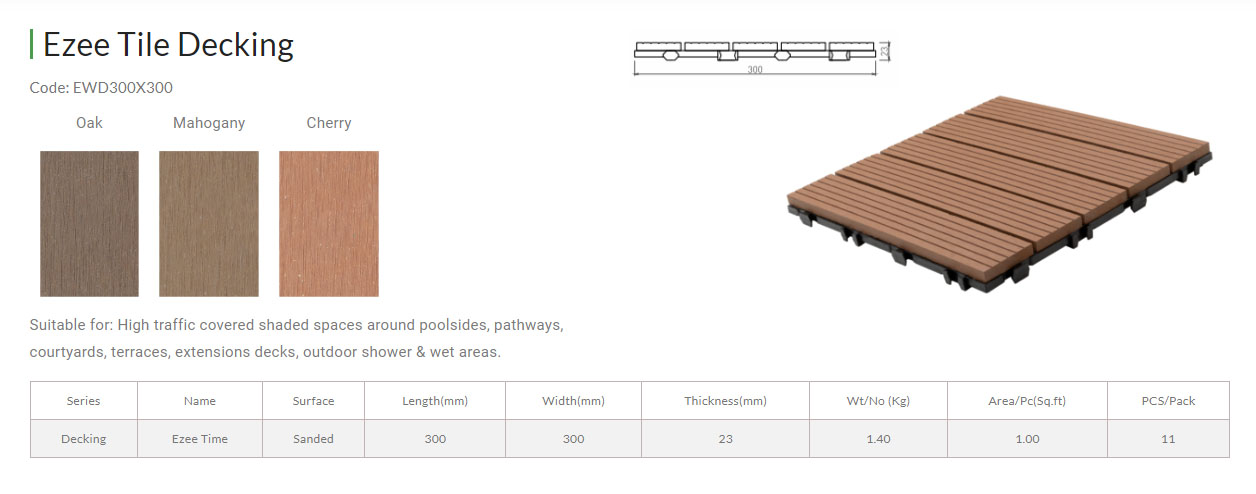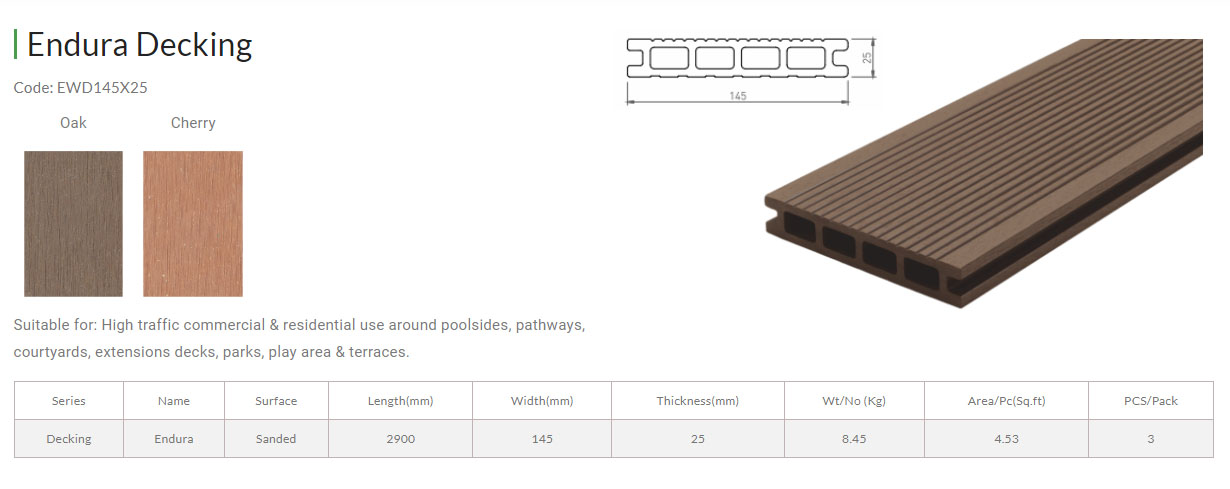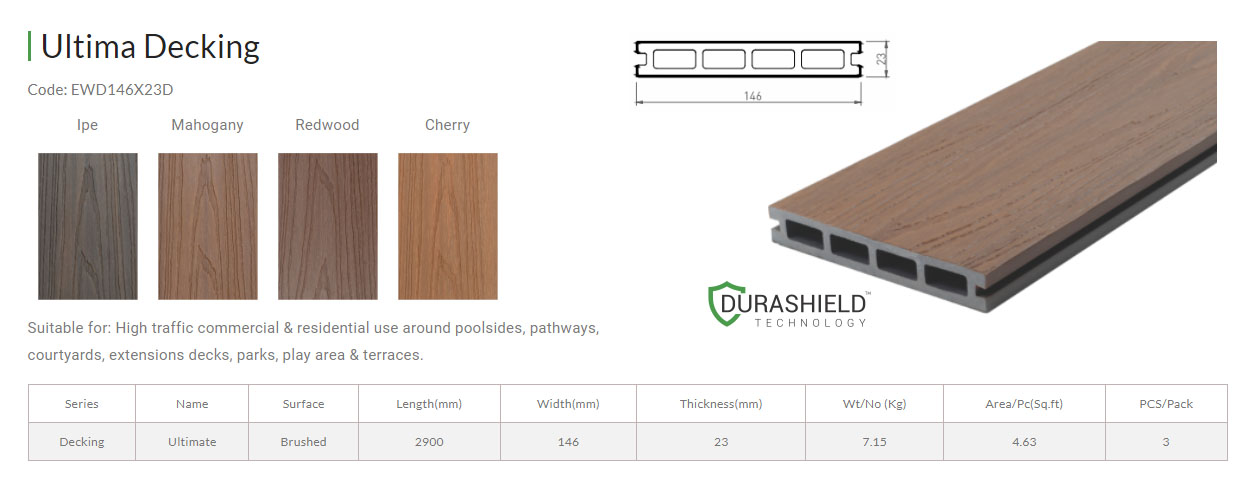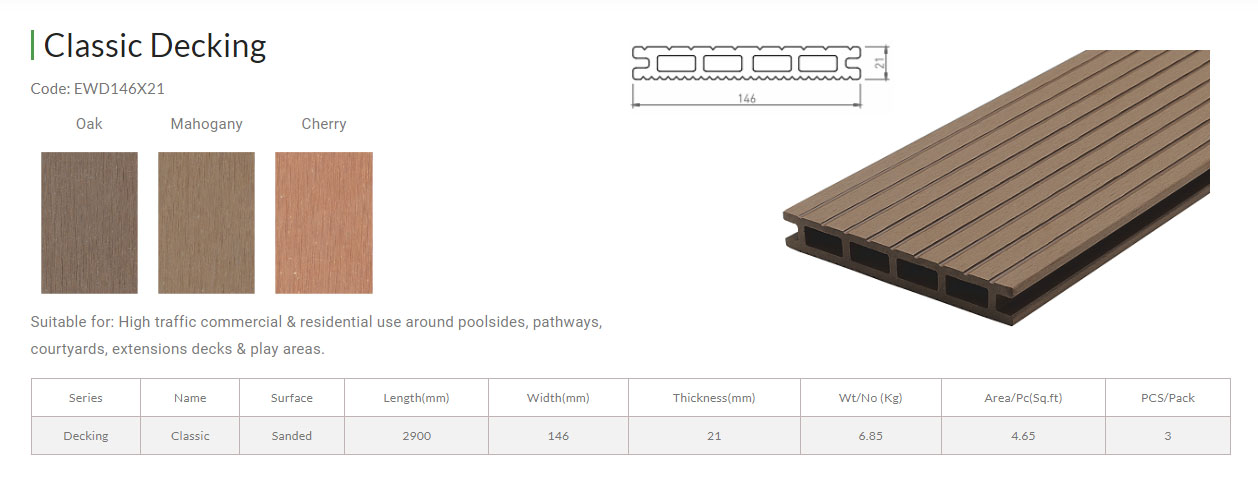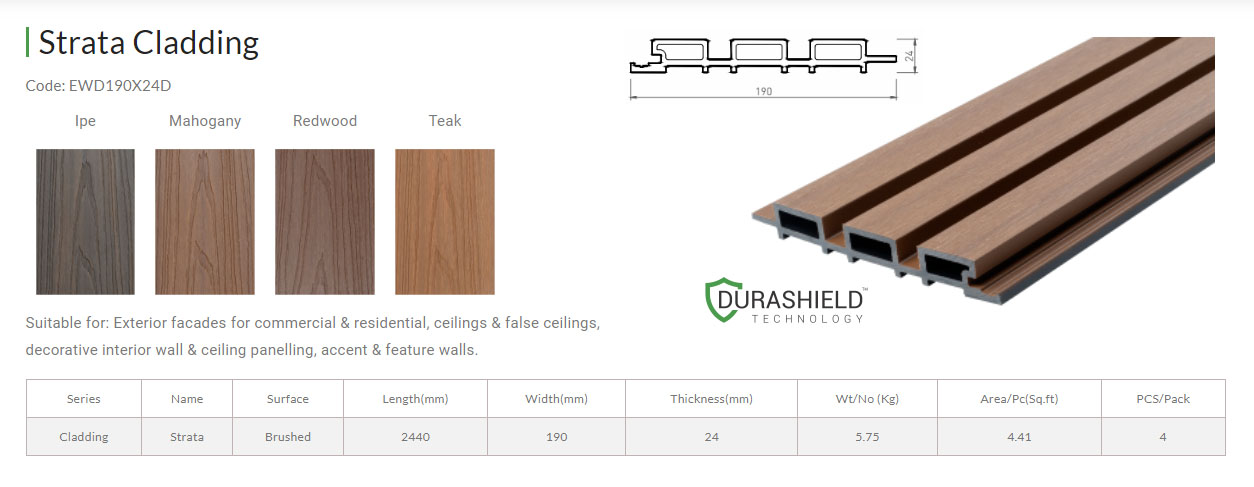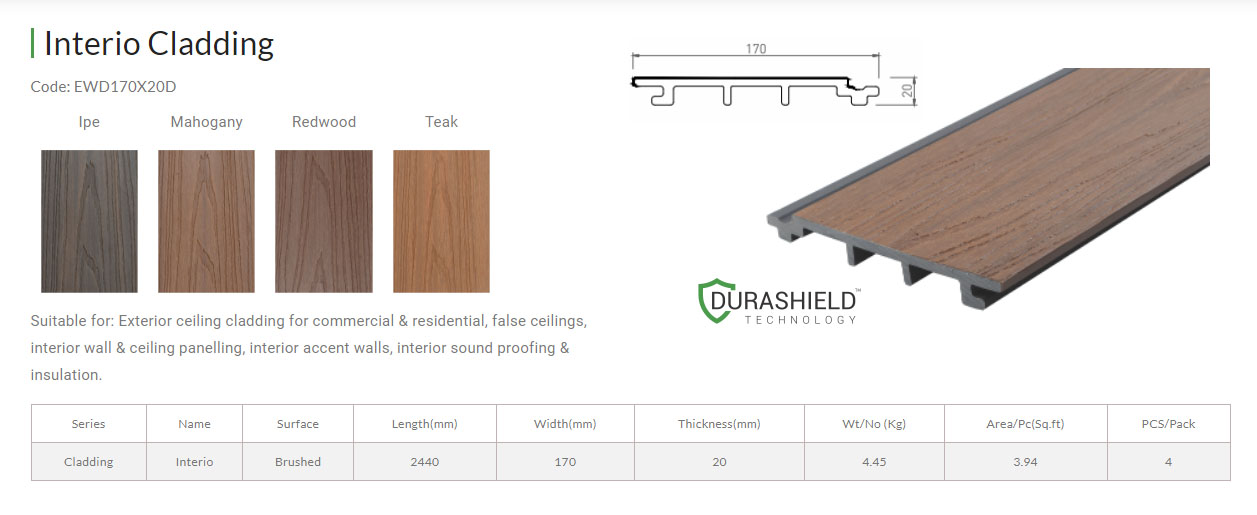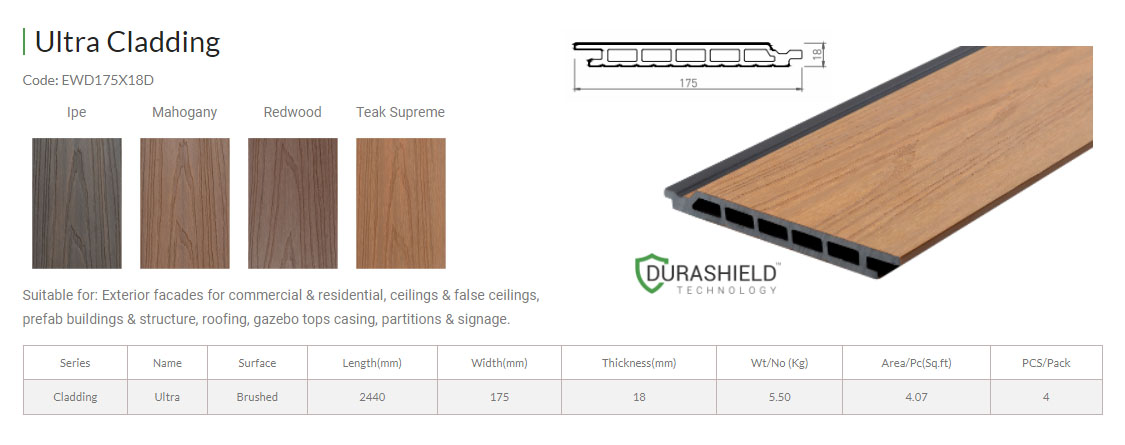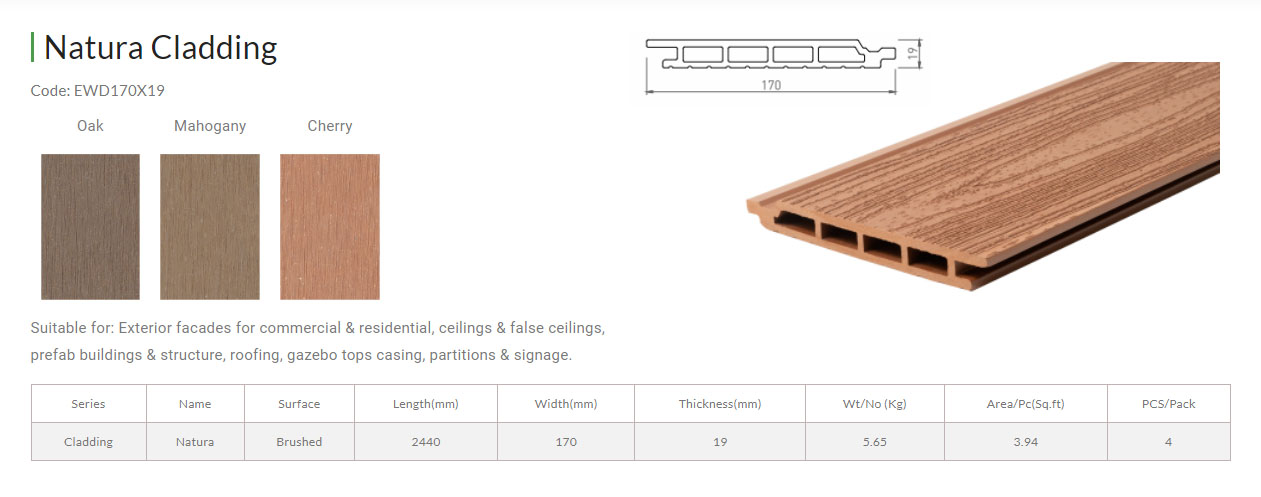Wood Composites (WPC) Vs Natural Wood
Wood Plastic Composites or WPC is being used for a variety of construction applications in the same way as natural wood. Being a composite material of wood powders and recycled thermo plastics, WPC carries inherentcharacteristics of wood aesthetics combined with the tenacity of composites to handle harsh weather conditions.
Wood Plastic Composites or WPC are being used for a variety of construction applications in the same way as natural wood. Being a composite material of wood powders and recycled thermoplastics, WPC carries inherent characteristics of wood aesthetics combined with the tenacity of composites to handle harsh weather conditions. Construction professionals find that with higher density, WPC is actually far superior to regular wood and achieves better performance characteristics and screw-holding capacity. Besides the capability to last longer with absolutely no maintenance, WPC does not have similar common problems of cracking, splitting, fading, and deterioration with exposure to exterior weather conditions that natural wood is associated with.
With the unique hybrid material composition of wood and polymers, WPC is a lot more durable and weather-resistant than wood, which needs constant care and maintenance to keep it looking good and protected. Decay, deformation, and deterioration are common to natural wood with exposure to moisture, termites, direct sunlight, and UV exposure. To protect the wood from these factors and extend its life in exterior conditions, wood needs regular surface and sub-frame treatment which is periodic, cumbersome, and very expensive over time. WPC on the other hand lasts for years without these common problems, needing absolutely no regular maintenance whatsoever.
Importantly, costs are a major factor today in any project. Not only the initial investment, but periodic maintenance costs are a sizeable expense and only getting more exorbitant by the year. As compared to quality timber and other materials WPC is possibly on par in terms of initial investment costs for various uses. But over time with the regular need for surface treatment and maintenance, the lifetime costs of maintaining wood and other materials are getting higher and well out of reach. Is it worth it? Not at all.


